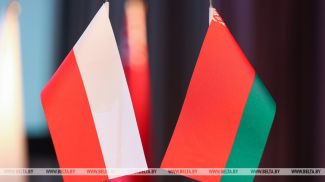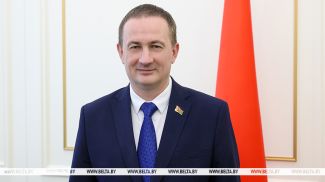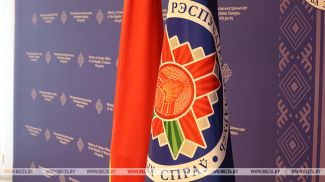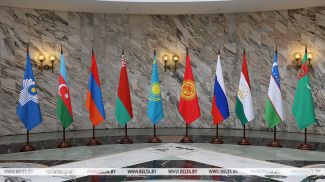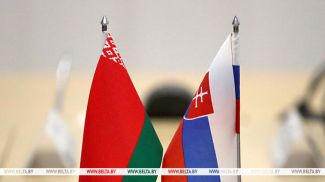MOSCOW, 9 December (BelTA) – Poland's use of special ammunition and other heavy-handed methods against refugees has been documented and requires a serious international investigation, BelTA learned from Spokeswoman of the Russian Ministry of Foreign Affairs Maria Zakharova on 9 December.
The official said: “We've repeatedly drawn the attention of civilized Europe, which constantly speaks out as an adherent of principles of humanism and human rights, to the extremely harsh treatment of migrants by Polish border service personnel and military personnel.”
Maria Zakharova reminded that there are plenty of women and children among the refugees at the Belarusian-Polish border. “Special ammunition, special gear such as tear gas, floodlights, water cannons, and service dogs have been used against them many times,” she pointed out. “The 21st century is now. Countries which say they are civilized use flashbangs and stun grenades against civilians, refugees, and migrants. All of it has been documented by the relevant bodies of the United Nations Organization, the Council of Europe, and the European Union's Frontex agency. For instance, the incident when the relevant Polish agencies dispersed toxic chemicals on 16 November definitely requires a serious international investigation. By the way, 132 people, including 23 kids, received chemical burns and damage to their respiratory organs back then.”
Maria Zakharova stated that reporters, who work on the Belarusian side of the border, have repeatedly seen how people are violently forced from Poland back to Belarus. In her words, it testifies to the purposeful violation of international law and European laws by Warsaw. Poland declared a state of emergency in the territory near the Belarusian border in early September. The measure prevents reporters from going there. It complicated and made impossible the presence of humanitarian organizations over there. After the state of emergency reached the maximum term of three months, Poland amended the law on the state border and kept all the restrictions. “It is what those who believe themselves committed to fundamental documents in the sphere of protection of human rights would do,” the official noted with irony.
Maria Zakharova went on saying that Belarusian authorities try to help refugees within the framework of international commitments and allow humanitarian organizations, including the Office of the United Nations High Commissioner for Refugees, the International Organization for Migration, the World Health Organization, and other ones, to access areas near the border. Humanitarian aid is now regularly delivered to the refugees. “I saw those estimates. We are talking about $25 million worth of aid delivered by Belarusian authorities to the refugees. They have also repurposed a logistics center and evacuated most of the migrants from the territory near the border to the center. They have managed to convince some of the people to return to their native country. As you know, about 3,000 people have left Belarus already.”




